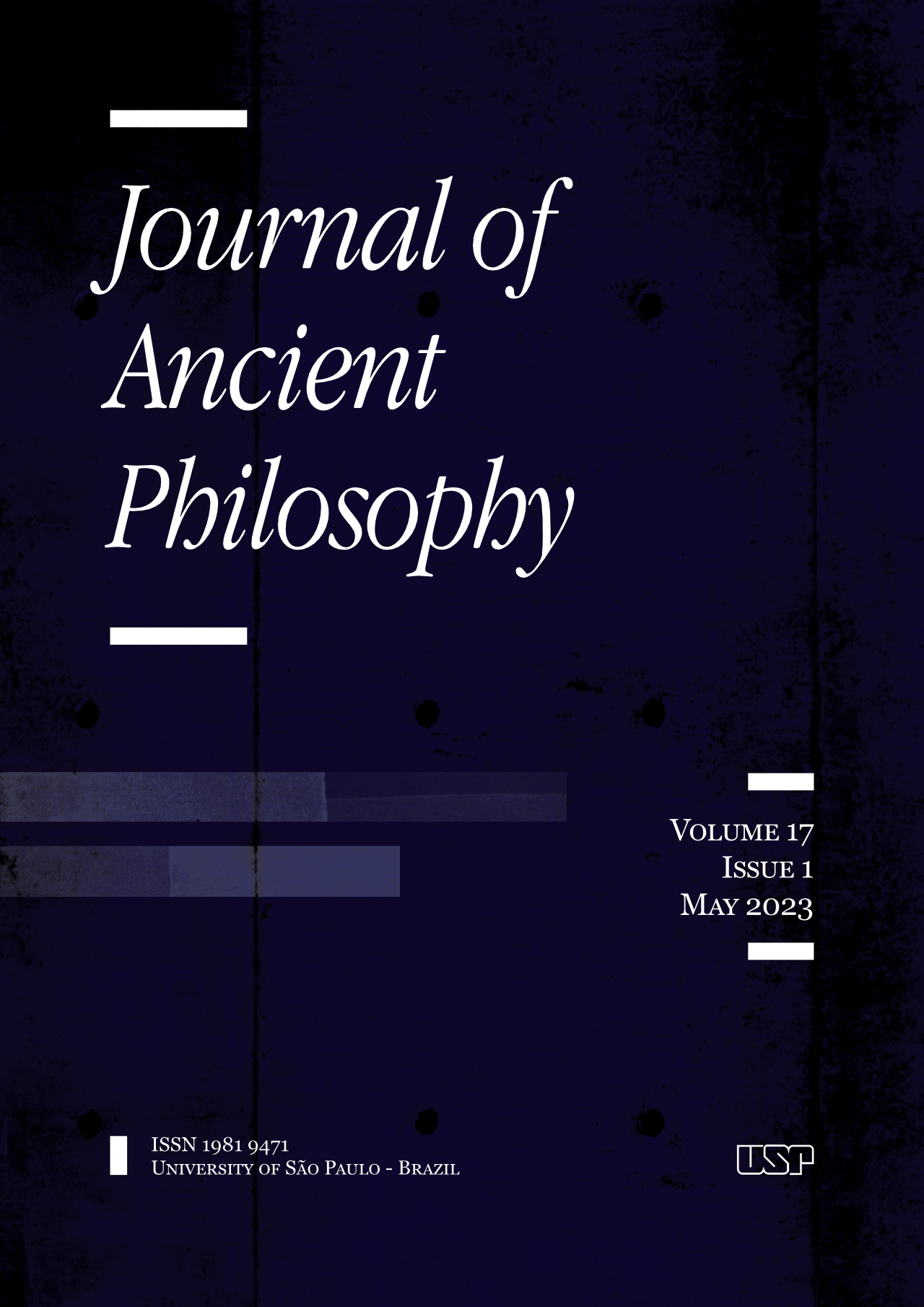Temporal Truth and Bivalence: an Anachronistic Formal Approach to Aristotle’s De Interpretatione 9
DOI:
https://doi.org/10.11606/issn.1981-9471.v17i1p59-79Keywords:
Aristotle, De Interpretatione 9, Sea Battle Argument, law of bivalence, temporal truth, trivalent semanticsAbstract
Regarding the famous Sea Battle Argument, which Aristotle presents in De Interpretatione 9, there has never been a general agreement not only about its correctness but also, and mainly, about what the argument really is. According to the most natural reading of the chapter, the argument appeals to a temporal concept of truth and concludes that not every statement is always either true or false. However, many of Aristotle’s followers and commentators have not adopted this reading. I believe that it has faced so much resistance for reasons of hermeneutic charity: denying the law of universal bivalence seems to be overly disruptive to logical orthodoxy – the kind of logical orthodoxy represented by what we now call classical propositional logic, much of which Aristotle clearly supports in many texts. I intend to show that the logical-semantic theses that the traditional reading finds in De Interpretatione 9 are much more conservative than they may seem to be at first glance. First, I will show that they complement, and do not contradict in any way, the orthodox definitions of the concepts of truth and statement that Aristotle advances in other texts. Second, by resorting in an anachronistic vein to concepts and methods peculiar to contemporary logic, I will show that a trivalent modal semantics conforming to those theses can be built for a standard formal language of the classical propositional calculus. It is remarkable that reasonable concepts of logical truth and logical consequence that may be defined on the basis of this trivalent modal semantics are coextensive with their orthodox counterparts, the concepts of tautology and tautological consequence of classical bivalent and extensional semantics.
Downloads
References
Anscombe, G.E.M. 1956, “Aristotle and the sea battle”, Mind 65 (257), 1-15.
Boethius 1877/1880, Commentarii in librum Aristotelis Peri Hermeneias, C. Meiser (ed.), Leipzig.
Fine, Gail 1984, “Truth and Necessity in De Interpretatione 9”, History of Philosophy Quarterly 1 (1), 23-47.
Judson, Lindsay 1988, “La Bataille navale d’aujourd’hui: De Interpretatione 9”, Revue de Philosophie Ancienne 6, 5-37.
Quine, Willard V.O. 1953, “On a So-Called Paradox”, Mind 62 (245), 65-67.
Rescher, Nicholas 1963, “An interpretation of Aristotle’s doctrine of future contingency and excluded middle”, in Rescher, Nicholas 1963, Studies in the History of Arabic Logic, Pittsburgh, 43-54.
Santos, Luiz Henrique L. dos 2021, “Aristóteles e a lógica da contingência. Uma interpretação tradicional do argumento da batalha naval”, Journal of Ancient Philosophy 15 (1), 64-143.
Simplicius 2000, Simplicius: on Aristotle’s Categories 9-15, London.
Strang, Colin 1960, “Aristotle and the sea battle”, Mind 69 (276), 447-465.
Thomason 1979, “Indeterminist time and truth-value gaps”, Theoria 3, 264-281.
Downloads
Published
Issue
Section
License
Copyright (c) 2023 Luiz Henrique Lopes dos Santos

This work is licensed under a Creative Commons Attribution-NonCommercial 4.0 International License.
Copyright
Authors who publish with this journal agree to the following terms:
- Authors retain copyright and grant the journal right of first publication with the work simultaneously licensed under a Creative Commons Attribution License (CC By 4.0) that allows others to share the work with an acknowledgement of the work's authorship and initial publication in this journal.
- Authors are able to enter into separate, additional contractual arrangements for the non-exclusive distribution of the journal's published version of the work (e.g., post it to an institutional repository or publish it in a book), with an acknowledgement of its initial publication in this journal.
- Authors are permitted and encouraged to post their work online (e.g., in institutional repositories or on their website) prior to and during the submission process, as it can lead to productive exchanges, as well as earlier and greater citation of published work (See The Effect of Open Access).


